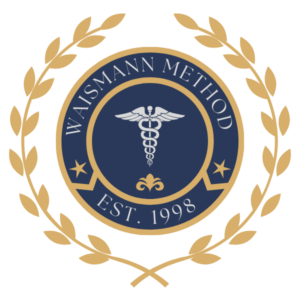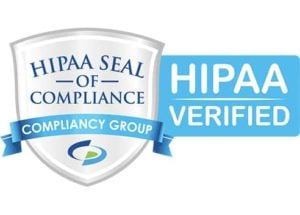Rapid opioid detox is increasingly recognized as an effective alternative to traditional detox methods. By offering a quicker, medically managed process, it has become a valuable solution for individuals struggling with opioid dependence. However, this growing interest raises several important questions. This comprehensive guide addresses the most common queries surrounding rapid opioid detox, with a focus on the reputable Waismann Method Rapid Detox, the nation’s leading rapid detox center known for its exceptional care and unmatched success.
1. What Is Rapid Opioid Detoxification?
Rapid Opioid Detoxification, commonly called “Rapid Detox,” is an advanced medical procedure aimed at quickly eliminating opioids from the body. Unlike traditional detox methods that can take weeks and involve intense physical discomfort, rapid detox occurs in a controlled hospital setting under sedation. This approach allows patients to bypass the most severe withdrawal symptoms.
During the procedure, healthcare professionals administer medications, such as opioid antagonists like Naloxone, to accelerate the body’s natural detoxification process. These medications block opioid receptors, flushing opioids out of the system while the patient remains sedated. This process not only reduces the intensity of withdrawal symptoms but also minimizes cravings, enabling a faster recovery process.
How Does Rapid Detox Work?
Rapid detox works by leveraging medical science to expedite withdrawal while keeping the patient as comfortable as possible. Here’s how:
- Pre-Treatment Preparation: Patients undergo a comprehensive medical evaluation to determine their health status and suitability for the procedure.
- Sedation: Once cleared, the patient is sedated to ensure they do not experience the physical and emotional distress of withdrawal.
- Administration of Antagonists: Opioid antagonists like Naloxone are administered to displace opioids from their receptors in the brain and body, triggering the detox process.
- Medical Monitoring: Throughout the procedure, a team of healthcare professionals monitors the patient’s vital signs and overall condition to ensure safety and effectiveness.
- Post-Detox Care: After detoxification, patients typically spend time recovering in a supervised setting to address lingering symptoms and regain physical and emotional stability.
Benefits of Rapid Opioid Detoxification
- Shortens the duration of detoxification.
- Minimizes physical and emotional distress associated with withdrawal.
- Performed in a safe, controlled, and medically supervised environment.
Following detox, patients are typically offered therapies like Naltrexone or Vivitrol, which help maintain abstinence and prevent relapse.
2. How Does Rapid Opioid Detox Differ From Conventional Methods?
Traditional Detox:
- Gradual process: The body naturally eliminates opioids over time.
- Intense withdrawal: Patients experience severe symptoms like nausea, muscle pain, and anxiety.
- Higher relapse risks: Cravings and discomfort often lead to early setbacks.
Rapid Detox:
- Medically assisted: Performed under anesthesia in an accredited hospital.
- Quicker process: Opioids are rapidly removed using antagonist medications like Naloxone.
- Reduced cravings: Blocking opioid receptors minimizes physical cravings, a major trigger for relapse.
By shielding patients from the physical toll of withdrawal, rapid opioid detox offers a more efficient and controlled alternative to conventional detox methods. This streamlined process provides a strong foundation for long-term recovery.
3. Is Rapid Detox Safe?
The safety of rapid opioid detox hinges on the expertise, protocols, and environment in which it is performed. Waismann Method, the world-renowned leader in accelerated opioid detox, has developed the safest and most effective protocol for this treatment, setting a global standard.
What Makes Waismann Method the Safest:
- Full-Service, Accredited Hospital Care: Patients are admitted to a fully equipped, licensed hospital where unexpected medical events can be managed immediately. This hospital-based care ensures the highest level of safety during detox under sedation.
- Comprehensive Pre-Detox Evaluation: Before detox begins, each patient undergoes an extensive medical evaluation to assess their health status, allowing for personalized care tailored to individual needs and risks.
- Custom Protocols: Waismann Method adapts its protocols to each patient’s medical profile, ensuring that the treatment is both effective and safe. There are no “one-size-fits-all” solutions.
- Highly Experienced Medical Team: Dr. Michael H. Lowenstein, a quadruple board-certified physician with nearly three decades of experience in opioid detox, oversees every procedure. His unmatched expertise ensures precise medical intervention.
- Around-the-Clock Monitoring: Continuous professional supervision before, during, and after the procedure ensures patient stability and addresses any concerns immediately.
- Comprehensive Post-Detox Care: Following detox, patients receive several days of focused inpatient recovery care at Domus Retreat, where both physical and emotional health are prioritized.
Why Safety Standards Matter:
In unregulated clinics or overnight programs, rapid detox can pose significant risks due to inadequate preparation, monitoring, and recovery protocols. Without proper medical supervision and a hospital-based environment, complications can arise, and patient safety may be jeopardized.
Waismann Method mitigates these risks through:
- A rigorous pre-detox evaluation to eliminate unforeseen complications.
- Sedation-assisted detox in a full-service, accredited hospital.
- Post-detox inpatient care to ensure complete stabilization and support.
This unmatched level of safety and comprehensive care is why Waismann Method is the gold standard for accelerated opioid detox worldwide. Patients choosing Waismann receive not just a treatment, but a safe, transformative pathway to recovery.
4. How Long Does the Rapid Detox Take?
The Rapid Detox procedure itself typically lasts a few hours, during which patients are sedated and monitored closely in a hospital setting. However, the overall process, including pre-detox evaluation, preparation, and post-detox recovery, usually spans 5 to 10 days, depending on the patient’s health and opioid dependence severity. This includes:
1. Pre-Detox Preparation
- Patients are admitted to a fully accredited hospital at least one day prior to the procedure.
- Extensive medical evaluations assess each patient’s overall health, opioid use history, and unique medical needs.
- Pre-medication and stabilization ensure the patient’s body is prepared for the detox process, minimizing risks and improving outcomes.
2. Rapid Detox Procedure
- Under anesthesia, patients undergo sedation-assisted detox, where opioid antagonists flush opioids from the system efficiently and safely.
- The procedure takes place in a controlled hospital setting with continuous monitoring from highly trained healthcare professionals.
3. Post-Detox Monitoring and Recovery
- Following detox, patients remain under professional observation for several days in the hospital to manage any withdrawal symptoms, address complications, and ensure stabilization.
- Patients then transition to Domus Retreat, a private and exclusive recovery center. At Domus, patients receive compassionate care focused on physical recovery and emotional stability.
Why Post-Detox Care Matters:
Detox alone does not guarantee long-term success. The immediate days after detox are critical for:
- Physical stabilization: Managing lingering withdrawal symptoms and ensuring the body recovers properly.
- Emotional support: Addressing emotional challenges with professional guidance to prevent relapse.
- Personalized care: Providing individualized attention and support tailored to the patient’s needs.
The Waismann Method ensures that no aspect of recovery is overlooked. By combining hospital-based detox with exceptional post-detox care at Domus Retreat, patients receive the most comprehensive and effective treatment available, setting them on a path to lasting recovery.
5. What is the Cost of Rapid Detox?
The cost of rapid opioid detox varies widely, typically ranging from $10,000 to $30,000 or more, depending on the level, quantity, and quality of care provided. These factors are crucial in determining not only the price but also the safety and effectiveness of the procedure.
Factors influencing the cost include:
- Hospitalization: Programs performed in full-service, accredited hospitals are typically more expensive but ensure greater safety and comprehensive care.
- Level of Care: Top-tier programs, such as the Waismann Method, ensure patients are admitted to a full-service accredited hospital one day before the detox. This allows for thorough medical evaluations, stabilization, and pre-medication to ensure safety and comfort during the procedure.
- Quantity of Care: Comprehensive programs often include a multi-day hospital stay under professional supervision and extended post-detox care in a specialized recovery retreat. This additional care helps patients adjust physically and emotionally after detox.
- Quality of Care: Experienced healthcare professionals, individualized protocols, and advanced medical techniques ensure the safest and most effective detoxification process.
- Customization: Costs may vary depending on the patient’s individual health needs and the complexity of the detox process.
Why Do Costs Vary?
Programs offering less care may exclude important safety measures, such as a hospital admission or post-detox recovery, which can lead to a lower price but also higher risks. In contrast, premium programs prioritize patient health and comfort, making them a more responsible choice despite the higher cost. Additionally, programs that only offers overnight detox or lack essential post-treatment support are particularly risky.
Without proper pre-evaluation and aftercare, patients face:
- A greater chance of relapse due to insufficient stabilization and emotional support.
- Increased risk of medical complications.
- Heightened discomfort during recovery.
Investing in Proven Results:
Choosing a program with the highest level, quantity, and quality of care is critical for a safe and effective detox. Programs that provide comprehensive support before, during, and after the procedure offer the best foundation for long-term health and stability.

6. Navigating Marketing Misconceptions
In the detox industry, misleading marketing claims are common. Terms like “accelerated detox” or “brain reset” are often used to rebrand rapid detox under different names. However, the reality is:
- If the treatment involves sedation and opioid antagonists, it is rapid opioid detox.
- The success of the procedure depends on the experience of the medical team, hospital accreditation, and the quality of post-detox care.
Avoid Unrealistic Promises:
Claims that detox can “reset” the brain or guarantee instant recovery are not grounded in science. Setting unrealistic expectations can lead to disappointment, relapse, or even overdose.
Focus on choosing programs that emphasize:
- Comprehensive care
- Transparency
- Safety
7. Where Can I Find a Rapid Detox Center Near Me?
When searching for a “rapid detox center near me,” it’s essential to prioritize quality, safety, and results over proximity. The Waismann Method, located exclusively in Southern California, has been the leading provider of rapid opioid detox since 1998. Patients from around the world travel to the Waismann Method because of its unmatched safety, effectiveness, and comprehensive care.
What Sets Waismann Method Apart:
- Hospital-Based Detox: Treatment begins in a full-service, accredited hospital, where patients undergo thorough evaluations, stabilization, and detox under continuous professional supervision.
- Comprehensive Post-Detox Recovery: After rapid opioid detox, patients recover at Domus Retreat, a private and licensed recovery facility offering personalized care to ensure physical and emotional stabilization.
- No Extra Arrangements Needed: Patients traveling from out of town receive:
- Private transportation to and from the airport.
- A private room in both the hospital and at Domus Retreat.
- Nutritious meals and other essential support services.
- No Companion Required: Unlike other detox programs, the Waismann Method ensures patients receive all necessary care and support without requiring a companion or additional hotel accommodations. From admission to departure, every detail is managed to ensure a stress-free, seamless experience.
- Unmatched Expertise: Dr. Michael H. Lowenstein, a quadruple board-certified physician with nearly three decades of experience, leads the program, ensuring the highest standard of care.
Waismann Method offers more than just detox; it provides a comprehensive, patient-focused solution for overcoming opioid dependence. Recognized globally for its proven results, exceptional safety, and unwavering commitment to excellence, it has become the trusted choice for individuals seeking effective and compassionate care for the treatment of opioid dependence.
Conclusion:
The journey to overcoming opioid dependence requires careful consideration of treatment options. While rapid opioid detox offers a faster, less painful solution, success ultimately depends on the quality of care provided. Programs like the Waismann Method set the gold standard by combining medical excellence, transparency, and compassionate support.
By prioritizing safety, expertise, and comprehensive care, patients can achieve not just detoxification but a solid foundation for long-term well-being. True healing begins with informed decisions and trusted treatment providers—because your health and future deserve nothing less.
Sources:
- What is Naltrexone?
- Vivitrol Extended-release Injectable Suspension
- Opioid Use Disorder
- DSM-5 Diagnosis of OUD
- New Methods of Rapid Opiate Detoxification
Written by Clare Waismann, Registered Addiction Specialist (M-RAS), Substance Use Disorder Certified Counselor (SUDCC II)
Disclaimer: The content of this article is intended for informational purposes only. It is not a substitute for professional advice or consultation. Despite the contributions from Clare Waismann, M-RAS, SUDCC II, and the expertise of our editorial team, information is subject to change, and readers are encouraged to seek direct expert guidance before acting upon any information provided here.
Opiates.com blog references various sources for its content. Always consult with a healthcare professional regarding any concerns or questions.














